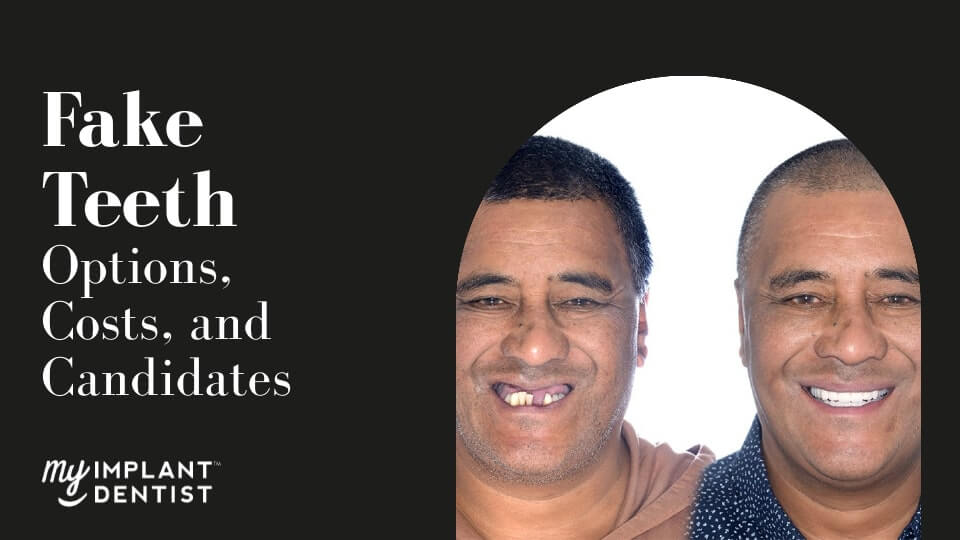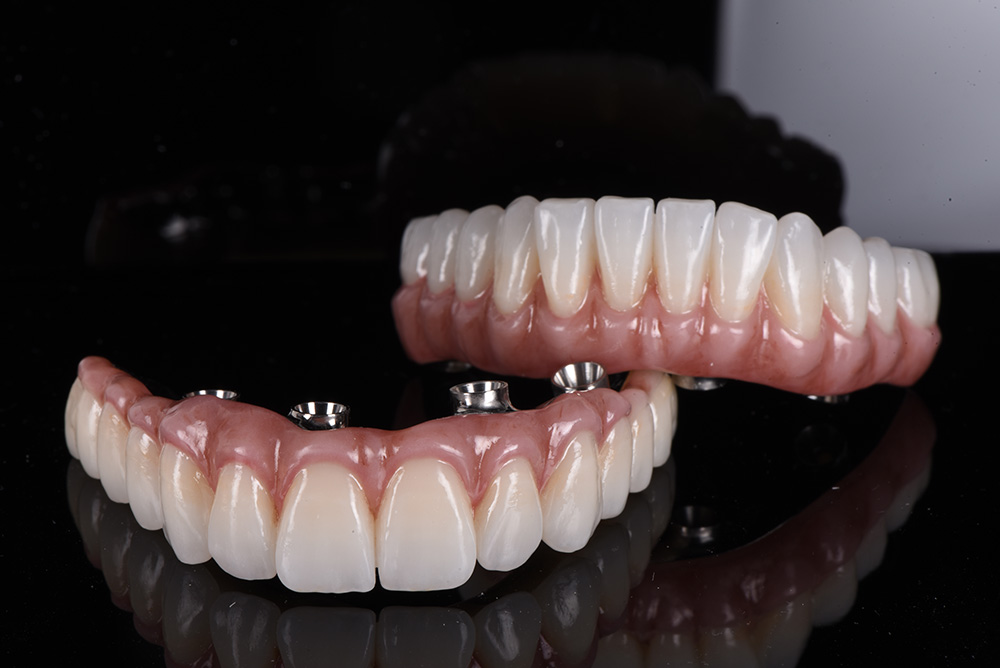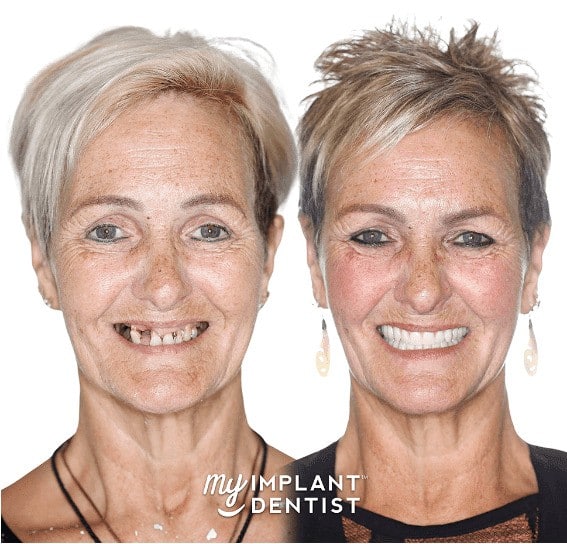- False teeth, often referred to as fake teeth, are artificial replacements for missing or damaged teeth, improving oral functionality, aesthetics, and boosting one’s confidence.
- The selection of the appropriate type of fake teeth depends on individual needs, budget, and dental health circumstances.
- The cost of fake teeth in Australia varies significantly depending on various factors such as the type of fake teeth, the materials used, and the dentist’s expertise.
- Getting fake teeth involves a multi-step process, including consultation, treatment planning, preparation of teeth, and placement of fake teeth.
- Fake teeth are an ideal solution for those with missing or damaged teeth, or for cosmetic reasons. However, consultation with a dental professional is recommended to choose the best option based on oral health, desired outcome, and budget.
Are you missing teeth, or you have damaged or decayed teeth that need to be replaced? Are you looking to improve your smile for cosmetic reasons? False teeth, also known as fake teeth, might be the perfect solution.
In this article, we will explore the different options for fake teeth, their costs, the process of getting them, and tips for maintenance and care. We will also discuss who the ideal candidates are for using fake teeth in Perth to improve their dental health and appearance.

Contents
What Are Fake Teeth?
False teeth, commonly known as fake teeth, are artificial tooth replacements crafted to restore the function and aesthetics of missing or damaged natural teeth. They come in various forms, including dentures, dental implants, dental bridges, and partial dentures, and are custom-made to fit the individual’s mouth for comfort and a natural appearance.
Options For Fake Teeth
Several dental prosthetics are available for patients with missing or damaged teeth. Each has its advantages and drawbacks, and selecting the right option depends on individual needs, budget, and dental health circumstances. In the sections below, we will delve into the most common options for fake teeth.
Dentures
Dentures, commonly known as false teeth, are removable devices that replace the entire set of original teeth. They are custom-made to fit comfortably onto the gums and provide a secure fit while restoring the function and appearance of natural teeth.
Dentures are priced modestly compared to other alternatives. However, they come with challenges like speech difficulties, the need for frequent adjustments, and potential reduced bone retention.
Dental Implants
Dental implants are a more permanent solution than other false teeth options. They involve surgically embedding a metal fixture into the jawbone, onto which an artificial tooth is attached. Implants are a durable and comfortable solution that lasts for a long time, potentially for life.
They also help in preserving the jawbone in the long term. Although dental implants are a popular choice, they are the most expensive option, and not all patients are ideal candidates due to factors such as bone quality and various medical conditions.
Dental Bridges
Dental bridges consist of one or more artificial teeth, made of porcelain, metal, or a combination of materials, and are anchored by dental crowns to adjacent healthy teeth.
Bridges are a great option for patients seeking a less invasive alternative to implants while being more stable than dentures.
However, bridges may have associated risks like tooth decay, gum disease, and increased stress on neighbouring teeth if poorly fitted or if oral hygiene is not maintained.
Partial Dentures
Partial dentures are ideal for patients who have only a few gaps in their teeth but still have remaining healthy teeth. These removable devices consist of a set of artificial teeth attached to a metal or acrylic base, custom-designed to fit the patient’s mouth.
Partial dentures provide a relatively affordable solution and help maintain jawbone structure by keeping the remaining teeth in position. However, they may cause some initial discomfort and require regular adjustments for optimal fit and function.
The Cost Of Fake Teeth In Australia
The cost of false teeth, also known as fake teeth, varies based on the specific type of dental prosthetic chosen. On average, dentures can range from $1,000 to $2,500 per denture, dental implants from $5,000-$7,500 per tooth and partial dentures $1,000 – $2,500 per jaw. These costs can fluctuate based on individual needs and specific dental conditions.
If you do not have private health insurance, it is important to remember that the Australian Government does not subsidise fake teeth costs. Thus, it is crucial to research your options carefully and ask your dentist for a detailed breakdown of the fees before starting any treatment plan.
| Type of Fake Teeth | Fake Teeth Cost in Australia |
| Full Dentures | From $2,500 |
| Dental Implants | From $3,999 per tooth |
| Partial Dentures | From $700 per denture |

The Process Of Getting Fake Teeth
Know that fake teeth procedures are a multi-step process that typically takes months from start to finish. It involves various stages, including consultation, treatment planning, preparation of teeth, and placement of fake teeth. Here is a rundown of each stage:
Consultation With A Dentist
The first step towards getting fake teeth is scheduling a consultation with your dentist. During this appointment, your dentist will evaluate your oral health, consider your needs and preferences, and recommend the most suitable type of fake teeth for your situation.
They will also provide an overview of the expected costs, material options, procedural steps, and potential risks and benefits.
Here is a pro tip: come prepared with a list of questions to ask your dentist during the initial consultation. For example, enquire about their experience in fitting fake teeth, the expected longevity of the chosen treatment, potential complications, and the type of aftercare required.
Treatment Planning
Based on the findings from the initial consultation, your dentist will create a customised treatment plan outlining the necessary steps and timeline for getting your fake teeth.
This plan may include preliminary procedures such as deep cleaning of your teeth, extraction of damaged or decayed teeth, or treatment of any existing gum disease.
Your dentist will also discuss your preferred material options for fake teeth, such as porcelain, resin, ceramic, or acrylic. Each material has its advantages and disadvantages in terms of durability, appearance, and cost.
Preparation Of Teeth
Before placing the fake teeth, your natural teeth often require preparation. For dental bridges, adjacent teeth are shaped and reduced in size for a comfortable fit. Dental implants involve a surgical procedure to insert a titanium screw into your jawbone for support.
Dentures require extracting damaged teeth and allowing the gums to heal for a stable base. Your dentist may provide temporary solutions while preparing your teeth for the fake teeth placement.
Placement Of Fake Teeth
Once your teeth are adequately prepared, your dentist will place the fake teeth. The process varies depending on the type of fake teeth you are getting:
- Dental Implants: After the implant has sufficiently integrated with your jawbone, an abutment will be attached, and a custom-made crown will be cemented or screwed onto it, completing the restoration.
- Dentures: Once your gums have healed and formed a stable base, your dentist will take an impression of your mouth, which is used to create your custom dentures. The dentures are then fitted and adjusted as needed.
- Dental Bridges: Your dentist will position the bridge on the prepared teeth and cement it into place, effectively filling the gap left by the missing tooth.
Remember, regular follow-up visits are essential to monitor the success of the fake teeth and ensure your oral health remains in optimal condition. Additionally, proper care and maintenance of your fake teeth are key to extending their longevity and enjoying a healthy, confident smile for years to come.
Maintenance And Care For Fake Teeth
Maintaining and caring for your fake teeth is crucial to ensure their longevity and your oral health. This involves regular cleaning, just like natural teeth. Dentures should be removed and cleaned daily with a soft denture brush and denture cleaner, not toothpaste. Dental implants and bridges can be cleaned like natural teeth, with regular brushing and flossing.
It’s also important to handle your fake teeth carefully to avoid damage. When not wearing your dentures, they should be placed in water or a denture cleaning solution to prevent them from drying out. Regular dental check-ups are also crucial to monitor the condition of your fake teeth and your overall oral health.
Who Are The Candidates For Fake Teeth?
Candidates for fake teeth are individuals who have lost one or more teeth due to decay, injury, or disease. They are also suitable for those who have damaged teeth that cannot be repaired with fillings or crowns. Candidates should be in good general health and have healthy gums to support the fake teeth.




















